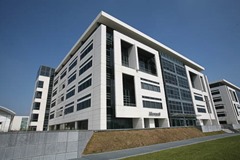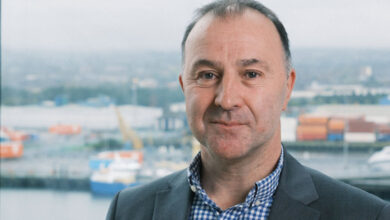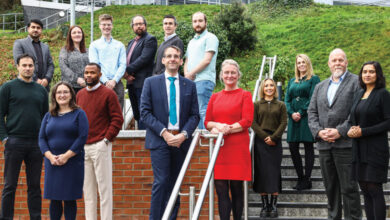Dublin’s data edge
 Research indicates that the Republic is highly attractive for hosting digital assets.
Research indicates that the Republic is highly attractive for hosting digital assets.
A recent study has concluded that the Republic of Ireland is one of the most attractive locations in Europe for international IT organisations aiming to host digital assets to service the Europe, Middle East and Africa (EMEA) region. The study was carried out by international IT analysts 451 Research on behalf of GconnTec a leading Irish IT firm.
The consultants revealed that Ireland is already rapidly becoming a major centre for data-hosting having already attracted some of the world’s most prominent digital brands.
The assessment of ‘attractiveness’ was done by scoring Ireland against nine criteria of equal weighting between one (weak) and four (strong). Across all nine criteria, Ireland scored a total of 32 out of a maximum 36 points.
The consultants pointed to Ireland’s overall political and economic stability and the fact that Ireland was the only English-speaking country inside the euro zone (aside from Malta). In addition, Ireland had a benign tax regime – not only the 12.5 per cent headline rate of corporation tax but also generous capital allowances and a special tax credit for research and development.
The Irish Government was also genuinely pro-business in numerous practical ways including aligning business legislation and regulation to meet important EU standards. The governmental authorities were also well used to dealing with multi-national companies. The quality of Ireland’s IT-literate workforce was also acknowledged.
In addition, the researchers found an impressive sectoral and physical infrastructure capable of supporting further data hosting investments in Ireland.
In physical infrastructure, Ireland has a competitive edge. Over the past ten years, Ireland has invested heavily in infrastructure including major cable connections with other European countries and with North America.
Data centres stated their view that Ireland’s low latency networks offered attractive possibilities to major ICT undertakings. The Irish Government, aware of the competitive advantage afforded by superior ICT infrastructure, has continued to invest heavily in high speed networks and in workforce development aiming to make Ireland a world leader.
Greater Dublin also benefits from the T50 broadband ring which links the important business districts and data centres, tele-houses and international ICT companies, connecting into the trans-Atlantic system hubs in Dublin. The T50 ring provides access to 27 international carriers and direct connectivity from Colt, Digiweb, BT, Viatel and euNetworks. It is the only data centre hub of its kind in all of Europe.
The research also revealed that energy infrastructure was important to potential investment. Data centres are significant consumers of energy and costs are part of the decision about location. The consultants concluded that costs were competitive and noted Ireland’s strong commitment to renewable energy.
Irish regulation around the ICT and data storage sector closely resembles the general legislative position established by the European Union. Thus compliance in Ireland achieves compliance in the EU. However, 451 Research discovered that Irish regulation had also been applied more flexibly.
Similarly, Ireland is already a favoured location for intellectual property due to a high standard of IP protection and a robust climate for enforcement. Also, Ireland’s headline 12.5 per cent corporation tax rate comes into play favourably in relation to IP.
451 Research also noted the large scale of existing internet exchanges, datacentres, hosting, cloud computing and big data – a perfect platform to build upon.
Major providers such as Microsoft, Amazon and Google have built massive facilities and internet leaders Google, eBay, PayPal, Yahoo and facebook all have their European headquarters or major bases in Dublin.
Ireland also has one of the most dynamic hosting markets in Europe. Cloud adoption is growing quickly alongside big data.
It will be reassuring for many that in a time of great economic difficulty, major international players in growing industries have decided to stay in Ireland and expand their activities.





